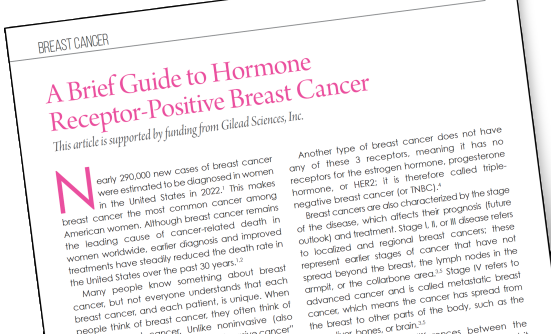In December 2020, the FDA approved the new targeted therapy Margenza (margetuximab-cmkb; from MacroGenics), for use in combination with chemotherapy, for the treatment of adults with metastatic HER2-positive breast cancer who have received 2 or more previous anti-HER2 medications, of which at least 1 was for metastatic breast cancer. This is the first targeted drug that has been shown to increase the time without disease progression, also known as progression-free survival (or PFS), compared with the standard of care for this type of cancer, the HER2-targeted therapy Herceptin (trastuzumab).
“As the only HER2-targeted agent to have shown a PFS improvement versus trastuzumab in a head-to-head phase 3 clinical trial, Margenza with chemotherapy represents the newest treatment option for patients who have progressed on available HER2-directed therapies,” said Hope S. Rugo, MD, Director of Breast Oncology and Clinical Trials Education, University of California San Francisco Helen Diller Family Comprehensive Cancer Center.
The FDA approved Margenza based on a phase 3 clinical trial of 536 patients with HER2-positive metastatic breast cancer who had received previous treatment with other anti-HER2 therapies. Patients were randomized to receive Margenza plus chemotherapy or Herceptin plus chemotherapy, and were divided by the choice of chemotherapy, the number of previous therapies received, and the number of metastatic sites.
The average time without disease progression was 5.8 months with Margenza compared with 4.9 months with Herceptin. Overall, 22% of the patients who received Margenza had a response to therapy compared with 16% of the patients who received Herceptin. The average duration of response was similar in both groups—6.1 months with Margenza and 6 months with Herceptin.
The most common side effects with Margenza plus chemotherapy were fatigue, nausea, diarrhea, vomiting, constipation, headache, pyrexia, hair loss, abdominal pain, neuropathy, arthralgia or myalgia, cough, decreased appetite, difficulty breathing, infusion-related reactions, and extremity pain.










